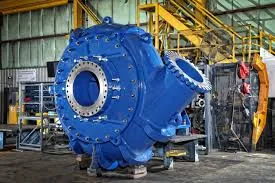Galician
- Afrikaans
- Albanian
- Amharic
- Arabic
- Armenian
- Azerbaijani
- Basque
- Belarusian
- Bengali
- Bosnian
- Bulgarian
- Catalan
- Cebuano
- Corsican
- Croatian
- Czech
- Danish
- Dutch
- English
- Esperanto
- Estonian
- Finnish
- French
- Frisian
- Galician
- Georgian
- German
- Greek
- Gujarati
- Haitian Creole
- hausa
- hawaiian
- Hebrew
- Hindi
- Miao
- Hungarian
- Icelandic
- igbo
- Indonesian
- irish
- Italian
- Japanese
- Javanese
- Kannada
- kazakh
- Khmer
- Rwandese
- Korean
- Kurdish
- Kyrgyz
- Lao
- Latin
- Latvian
- Lithuanian
- Luxembourgish
- Macedonian
- Malgashi
- Malay
- Malayalam
- Maltese
- Maori
- Marathi
- Mongolian
- Myanmar
- Nepali
- Norwegian
- Norwegian
- Occitan
- Pashto
- Persian
- Polish
- Portuguese
- Punjabi
- Romanian
- Russian
- Samoan
- Scottish Gaelic
- Serbian
- Sesotho
- Shona
- Sindhi
- Sinhala
- Slovak
- Slovenian
- Somali
- Spanish
- Sundanese
- Swahili
- Swedish
- Tagalog
- Tajik
- Tamil
- Tatar
- Telugu
- Thai
- Turkish
- Turkmen
- Ukrainian
- Urdu
- Uighur
- Uzbek
- Vietnamese
- Welsh
- Bantu
- Yiddish
- Yoruba
- Zulu
Telephone: +86 13120555503
Email: frank@cypump.com
Nov . 05, 2024 01:34 Back to list
hot sale chemical circulating pump
Hot Sale Chemical Circulating Pumps Understanding Their Importance and Applications
In the realm of industrial processes and chemical manufacturing, the efficiency of fluid movement plays a pivotal role in ensuring successful operations. Among the various types of machinery designed for this purpose, chemical circulating pumps stand out for their ability to handle corrosive and hazardous fluids effectively. This article aims to delve into the significance of chemical circulating pumps, their applications, and the reasons behind their rising popularity in the market.
What are Chemical Circulating Pumps?
Chemical circulating pumps are specialized devices designed to transfer, circulate, and manage the flow of chemical solutions, slurries, and other corrosive liquids. These pumps are built to withstand the harsh conditions often associated with chemical processing, including high temperatures, varying viscosities, and aggressive chemical interactions. Engineered from materials such as stainless steel, plastic, or other corrosion-resistant composites, they ensure durability and reliability in demanding environments.
Key Features and Advantages
One of the primary reasons for the rising demand for chemical circulating pumps is their evolution in technology and design. Modern pumps come equipped with advanced features that enhance performance. These include
1. Corrosion Resistance The materials used in chemical circulating pumps are resistant to rust, corrosion, and degradation, preserving the integrity of the machine and the fluids being transferred.
2. High Efficiency Many designs incorporate advanced hydraulic principles, allowing for optimized flow rates and reduced energy consumption, which is crucial for cost-effectiveness in large-scale operations.
3. Versatile Applications These pumps can be used in a wide range of industries, including pharmaceuticals, petrochemicals, wastewater treatment, and food processing, making them integral to many production processes.
hot sale chemical circulating pump

5. Compact Design Space is often at a premium in industrial settings, and many manufacturers have focused on creating pumps that take up less space while maintaining high performance.
Applications of Chemical Circulating Pumps
Chemical circulating pumps are found in various applications across multiple industries
- Pharmaceutical Industry Used to circulate solvents, reactants, and intermediates throughout the production processes while ensuring precision in temperature control and fluid movement.
- Petrochemical Industry Critical for the transport and processing of crude oil, refined products, and chemical additives where efficiency and reliability are paramount.
- Wastewater Treatment Facilities Essential for moving chemicals used in water treatment processes, such as coagulants and disinfectants, ensuring compliance with environmental regulations.
- Food and Beverage Processing Often employed in the transfer of sauces, syrups, and other liquid ingredients, where hygiene and cleanliness are critical.
Conclusion
As industries continue to innovate and evolve, the need for reliable, efficient, and durable chemical circulating pumps becomes increasingly evident. Their ability to handle a variety of challenging fluids and conditions cement their importance in modern manufacturing processes. The hot sale of these pumps is a testament to their vital role in ensuring safe and efficient chemical processing across diverse industries. With ongoing advancements in pump technology, the future of chemical circulating pumps looks promising, making them a worthwhile investment for businesses seeking to enhance their operational capabilities. Adopting these pumps can lead to increased efficiency, safety, and ultimately, a better bottom line.
-
Horizontal Split Case Pump with GPT-4 Turbo | High Efficiency
NewsAug.01,2025
-
ISG Series Pipeline Pump - Chi Yuan Pumps | High Efficiency, Durable Design
NewsAug.01,2025
-
Advanced Flue Gas Desulfurization Pump with GPT-4 Turbo | Durable & Efficient
NewsJul.31,2025
-
ISG Series Vertical Pipeline Pump - Chi Yuan Pumps | Advanced Hydraulic Design&Durable Construction
NewsJul.31,2025
-
ISG Series Vertical Pipeline Pump - Chi Yuan Pumps | Energy Efficient & Low Noise
NewsJul.31,2025
-
pipeline pump - Chi Yuan Pumps Co., LTD.|High Efficiency&Low Noise
NewsJul.31,2025










